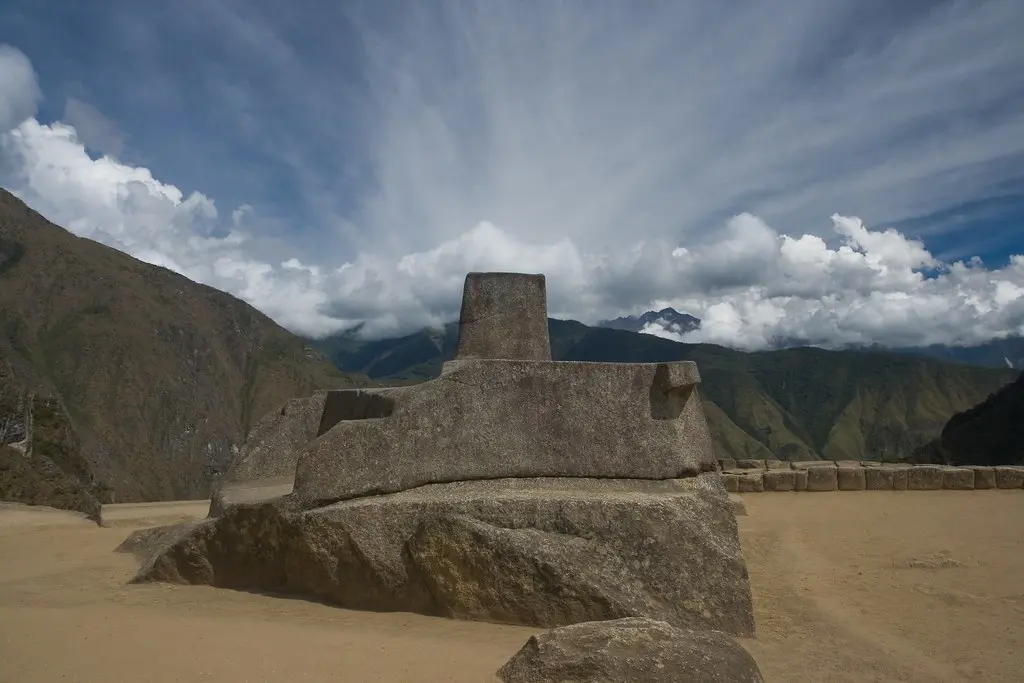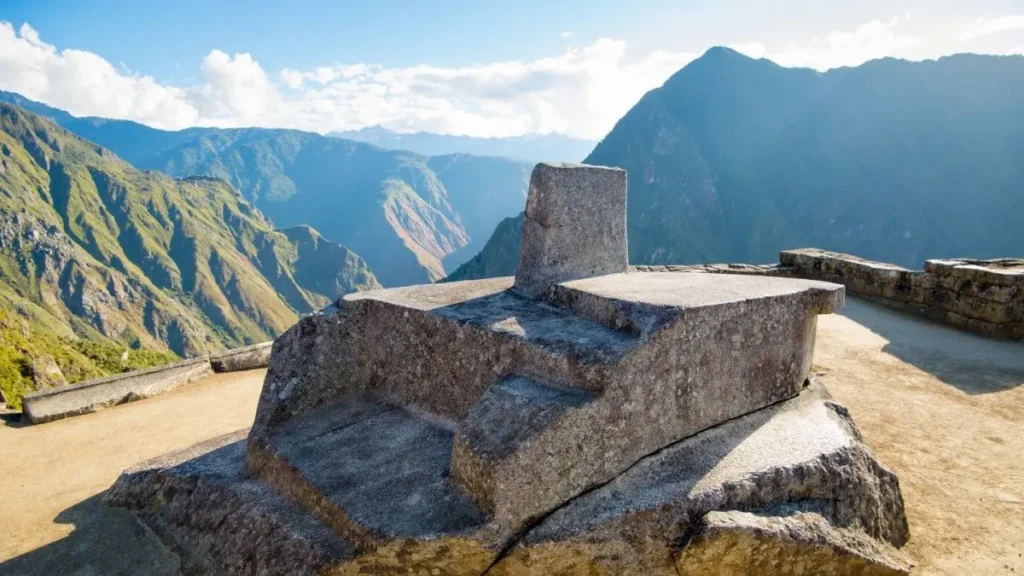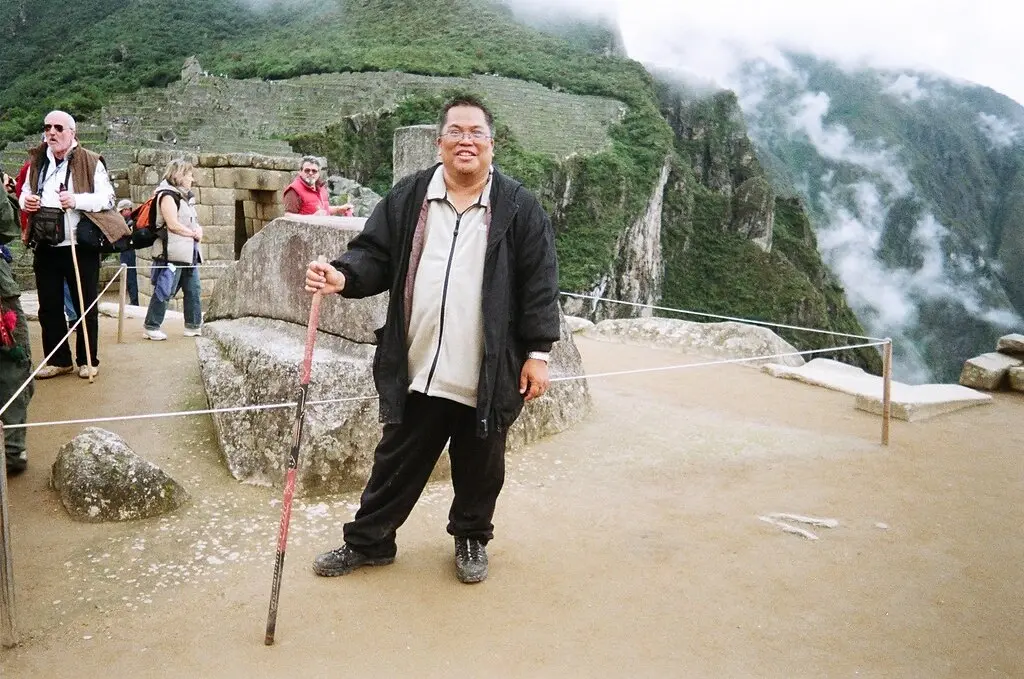The Mysterious Intihuatana: The Sacred “Watch” of Machu Picchu
The Intihuatana is one of the most fascinating and best preserved elements of Machu Picchu. This carved stone functioned as a sophisticated astronomical instrument for the Incas. In this guide, we explore its meaning, function and how to visit it in the citadel.

What is the Intihuatana?
- Meaning: “Where the sun is tied” (from Quechua Inti = sun, huatana = to tie).
- Function: Sundial and astronomical calendar
- Location in Machu Picchu: Hanan sector (upper area), near the Temple of the Sun.
- Unique features:
- Granite stone polished to millimetric precision
- Angles perfectly aligned with cardinal points
- Shadow marking the solstices and equinoxes.
Astronomical Function of Intihuatana
Inca Agricultural Calendar
- Marking the seasons for planting and harvesting
- During solstices (21 Jun and 21 Dec), the sun creates particular shadows:
- Winter Solstice: Longest Shadow
- Summer Solstice: Shorter Shade
Religious Ceremonies
- Central point for rituals to the god Inti (Sun)
- Inca priests symbolically “tied” the sun so that it would not escape during the winter solstice.

Important Historical Data
- Construction: XV century, during the government of Pachacútec.
- Discovery: It was identified by Hiram Bingham in 1911.
- State of conservation: One of the few Intihuatanas that survived the Spanish destruction.
- Vandalism: In 2000, a filming crane partially damaged it (today it is protected).
How to Visit the Intihuatana in Machu Picchu
Exact Location
- Upper urban sector (Hanan)
- After the Temple of the Sun and before the agricultural sector
- Coordinates: 13°09’48 “S 72°32’44 “W
Recommendations for the Visit
- Ideal time: 10:00-11:00 am (best light for photos)
- Access: Included in the general entrance fee to Machu Picchu.
- Restrictions:
- No touching (delimited area)
- Use of tripods prohibited without special permission
- Recommended guide: Hire an official guide to understand its significance.

Curiosities of the Intihuatana
- Incredible accuracy: Angles have less than 1° of error
- Perfect Alienation: Aim directly to the Astronomical South
- Alternative theories: Some researchers suggest that it also served as a sacrificial altar.
- Special energies: Many visitors report unique sensations when in close proximity to
Other Intihuatanas in Peru
Machu Picchu is not the only place with these structures:
- Pisac: Intihuatana in the Archaeological Park
- OllantaytamboIn the Temple of the Sun
- Huayna Picchu: Small version near the summit
Photographic Tips
- Best angle: From the northeast side with the mountains in the background
- Golden hour: Between 10 am and 2 pm to avoid hard shadows
- Composition: Include Inca stairways as a natural frame.
Why is the Intihuatana of Machu Picchu so special?
- Best preserved: Shows details impossible to see elsewhere.
- Privileged location: In the heart of the sacred citadel
- Scientific accuracy: Demonstrates advanced astronomical knowledge
- Mystery intact: Still keeping secrets to be discovered
No comments:
Post a Comment